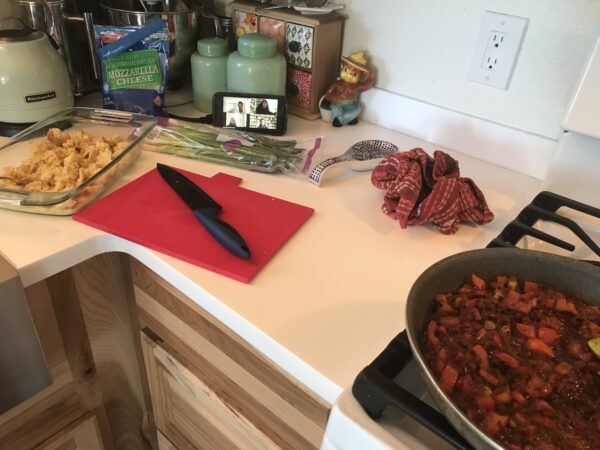Marfa’s annual Chinati Foundation Open Weekend was online this year. (Much of the programming, which took place Oct. 9-11, is still available on Chinati’s website.) While an appropriate and creative solution to the difficulties that Covid-19 presents for a town without a hospital, I’m sure that like me, most of you have extreme screen fatigue these days. For Chinati, and Donald Judd’s work in particular, the screen is especially flattening. (I’m not being mean. I just miss the real world.)
What wasn’t flat, and rather enjoyable about the programming, are the extracurriculars. From the ghost stories and horse folklore from the late, great Lonn Taylor, and a charming interview with Donald Judd by Marfa elementary school students — who had the gall to ask questions like “why don’t you like publicity?” — the programming wrapped up somberly with a toast by Chinati director Jenny Moore and a bagpipe procession by El Paso’s Mahrla Manning.
One particular advantage to the online format for the weekend was access to different conversations between Chinati director Jenny Moore and (still newly appointed) curator Ingrid Schaffner and several other American art bigwigs, like Chief Curator of Painting and Sculpture at MoMA Ann Temkin, and Skowhegan Co-Director Sarah Workneh.
Unfortunately, one of the most compelling parts of the weekend is not available online, the “Looking Forward” segment with Lynne Cook (a Senior Curator at the National Gallery in Washington D.C.), Workneh, and Schaffner, in which they delved into non-binary thinking, the often arbitrary delineation of craft versus art, and the mystery of what can happen in unobserved, unbothered spaces. Listening to this segment while making a chorizo strata (with the sounds of my daughter and her cartoons in the background), their conversation carried home the ideas of accessibility in art, and the role Marfa plays in that push for the far West Texas/Southern New Mexico region.
And, as an oil patch native myself, listening to Chinati artist-in-residence K.B. Jones genuinely marvel at Dairy Queen Blizzards and dust storms was an experience.
Perhaps part of the lure of Marfa for an East Coast resident could be the integration of themselves into the small, dusty town. The lure of Marfa for someone who lives in Texas, or much of fly-over country for that matter, is the access to the art world at large at a pace that is familiar. Marfa is the marriage of these ideas: Judd’s particular vision was big work and big art spaces for this sparse, vast, harsh, quiet environment. The divisive horizon line and arid landscape, along with the absence of crowds (and some of the amenities that sustain them) must feel really resonant and yet exotic to an outsider. Because of Judd’s vision, other art spaces and happenings in the area have developed well beyond Chinati (thinking: Ballroom Marfa, the various events series there and out of El Cosmico, Marfa Myths, CineMarfa, etc.). Expansive, but not overly so. Bless Judd for that. And, bless Marfa for keeping it that way.
Open Weekend is, generally and historically, a wonderful way to access a lot of art, and through the online format: art ideas. Having attended Open Weekend as a grad-school volunteer, sleeping on the gym floor and whispering “please don’t sit on that chair, it’s art,” and later, as a visitor, chasing my one year-old around galleries hissing “please don’t sit on that chair, it’s art,” I look forward to the the accessible Open weekends of the future.





1 comment
Good News! A recording of the conversation Looking Forward–with Lynne Cooke and Sarah Workneh–is available on Chinati’s website, along with much of the weekend’s online content at: https://chinati.org/chinati-weekend-2020/